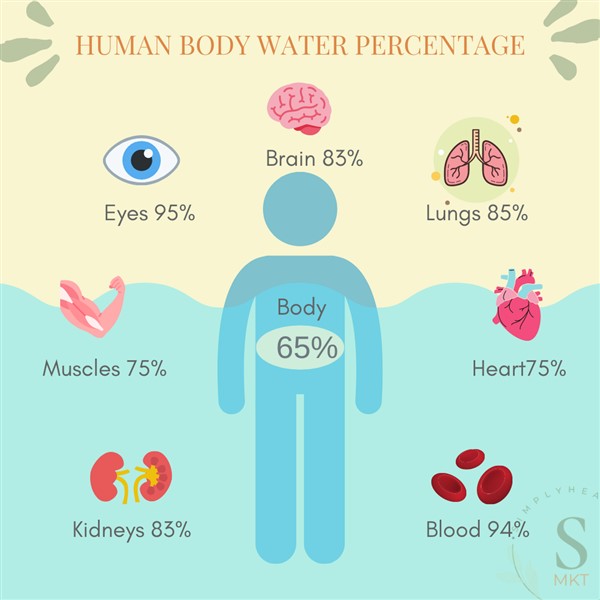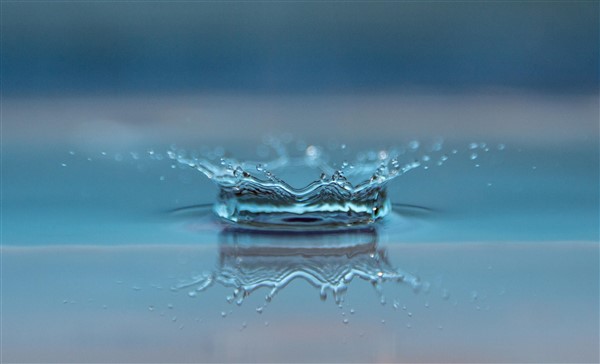The Fountain of Youth is a mythical spring that allegedly restores the youth of anyone who drinks or bathes in its waters.
Legend has it, the Fountain of Youth sprang forth magical water that would cause a person to live forever when you’d drink it. It was a source, a kind of energy that could keep you young even as you grew older. Every culture has always seen water as symbolic of health, refreshment, purification, and rejuvenation.
All creatures that now walk the earth are said to have originated out of the waters of the Oceans. 70 percent of the earth’s surface is covered in water, 65 percent of the Human Body is water. The blood, the brain, and our organs are mostly water; even our bones are 31% water. Not only do we drink and cleanse with water, internally we flush and clean with water; water soothes, regulates, and lubricates, purifies, stimulates, and rejuvenates.
Water is essential for the body to survive. You can survive for weeks without eating food. However, after 3 days without water, organs begin to suffer, and the body starts the process of slowing down. The body will then try to retain as much of its precious water as possible. Yet, as crucial as it is to our very survival, health, and well-being, quite a large percentage of us don’t drink enough water

How Much Water Should We Drink
The amount of water needed each day varies from person to person. Depending on your age and sex, how active you are, how much you sweat, and so on. Each day we each lose 2-3 liters through urine, sweat, and bowel movements; we lose water even in the form of breathing. While all of these functions are essential to our survival, we need to replenish fluid loss.
Up until recently, the general consensus said that we should drink eight glasses of water a day. That consensus has been recalibrated to consider age, weight, environment, activity, and so on. The recommended daily water intake for a woman is between 2 and 2.5 liters and 2.5 and 3.5 liters of water for a man. Maintaining a balanced water level is critical to avoid dehydration and overhydration, both of which can harm one’s health.
Signs that you are not drinking enough water
Our bodies will let us know if we are becoming dehydrated. Sensory receptors in the brain will trigger the release of an antidiuretic hormone when low water levels are detected. The hormone informs the kidneys to absorb and retain as much water as possible, resulting in concentrated, dark urine.
Dehydration can result in noticeable reductions in energy, mood, body ache, constipation, skin moisture, blood pressure, as well as indicators of cognitive impairment, being dizzy or lightheaded, headaches, and brain fog.
While clean drinking water is the healthiest hydrator, other beverages, even those with caffeine like coffee or tea, replenish fluids. And water within food makes up about a fifth of our daily water intake. Fruits and vegetables like strawberries, cucumbers, and even broccoli are over 90% water. They can supplement liquid intake while providing valuable minerals, nutrients, and fiber.
Foundation of Health
While we may not have found the fountain of youth, there is something magical in drinking adequate amounts of water and maintaining optimal hydration. If it doesn’t keep you young forever, it helps the body, the blood, the organs, and the brain, slow down the aging process. It may not be the fountain of youth, but water is most certainly the foundation of health.
Functions of Water
- Lubricate the Joints.
- Regulates body temperature.
- The digestive system depends on it.
- It flushes body waste and Toxins.
- It delivers essential minerals and nutrients to the body.
- Increases Energy & relieves fatigue.
- It delivers oxygen throughout the body.
- It help maintain blood pressure.
- Assists in weight loss.
- It boosts skin health.
- Maintains Regularity.
- The airways need it.
- And it quenches your thirst.

